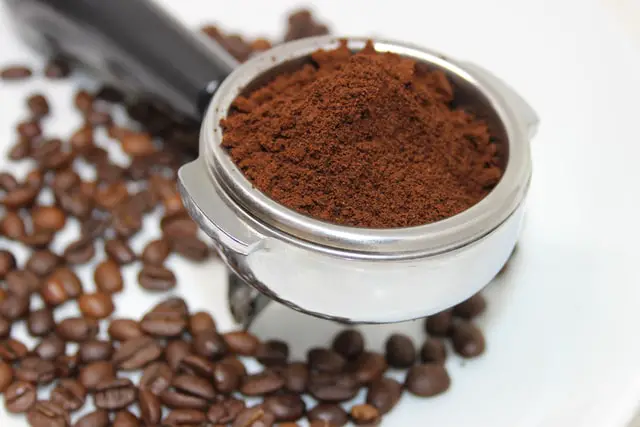Last Updated on 19/02/2022 by Miki
Table of contents
Whether or not you can dump coffee grounds down the sink is a question that many people have. The answer to this question is both yes and no. If you have a septic tank, then you should not dump any coffee grounds down the sink. On the other hand, if you do not have a septic tank, then it is safe to dump coffee ground down the sink. Coffee grounds are a great way to function your sink by reducing the amount of grease that accumulates.
Can You Dump Coffee Grounds Down The Sink?

Coffee grounds are a great addition to your garden, but can you dump them down the sink? The simple answer is yes, you can dump coffee grounds down the sink. Having said that, it’s not a good idea to do so if you have a septic tank as mentioned in the introduction. Dumping coffee grounds down the sink may seem like a great way to get rid of them, but it can actually cause some big problems. Coffee grounds can clog up your sink and pipes, leading to costly repairs. Therefore, it’s important to do so in a way that doesn’t cause any damage. Here are a few tips for dumping coffee grounds down the sink:
- Make sure the grounds are wet. This will help them to break down more easily and won’t cause any logs.
- Don’t dump grounds down the sink too often. Doing so will cause build-up and could lead to clogs.
- Dispose of grounds in a drain strainer. This will help them clean the drain and will not harm the plumbing.
Can you Dump Coffee Grounds Down The Toilet?
Now, you may be wondering if dumping coffee grounds down the toilet is a good idea. Well, the answer is: It depends. In general, dumping coffee grounds down the toilet is not a good idea. The grounds can clog up the plumbing and create a mess. However, if you are using a septic system, coffee grounds can actually be beneficial. The grounds help to break down the solids in the septic tank, which can help to keep the system running smoothly. Therefore, there’s a similarity in dumpling coffee grounds down the toilet and down the sink.
How To Dissolve Coffee Grounds
When you’re finished with your morning coffee, what do you do with the grounds? You could toss them in the rubbish bin, but there’s a better way to handle them. Here’s how to dissolve coffee grounds so that you can use them for compost or another project:
- Fill a pot with water and place it on the stove.
- Turn the heat up to medium-high and wait for the water to come to a boil.
- Add the coffee grounds to the boiling water.
- Stir the ground and water to help them dissolve.
- Allow the grounds and water to boil for a few minutes.
- Remove the pot from the stove and allow it to cool.
- Pour the dissolved coffee grounds into a container and use for compost.
Coffee Grounds In Compost

Coffee grounds are a rich, organic material that can be used in a compost pile to create a nitrogen-rich environment that helps break down organic materials. They make the compost pile a more effective fertiliser for your garden.
Can you put too many coffee grounds in compost?
This is a question that many people have, and the answer is not a simple one. Coffee grounds are high in nitrogen, which is a nutrient that is essential for plant growth. This means that adding coffee grounds to compost can be beneficial, as it will help to increase the nutrient content of the compost. However, if too many coffee grounds are added, it can disrupt the balance of the compost and have a negative impact on the plants that are grown in it. Therefore, it is important to add coffee grounds in moderation and to test the compost to make sure that it is providing the right level of nutrients for the plants that are being grown.
Final Thoughts
Whether or not you can dump coffee grounds down the sink is a question that has been debated by many people. The answer is that it is not recommended to do so. You should refrain from dumping coffee grounds down the sink on a regular basis. Coffee grounds can clog up the sink over time and create a mess. If you have a coffee maker with a reusable filter, you can simply dump the grounds in the rubbish bin. Otherwise, it’s best to use them as a fertilizer or compost them instead.
